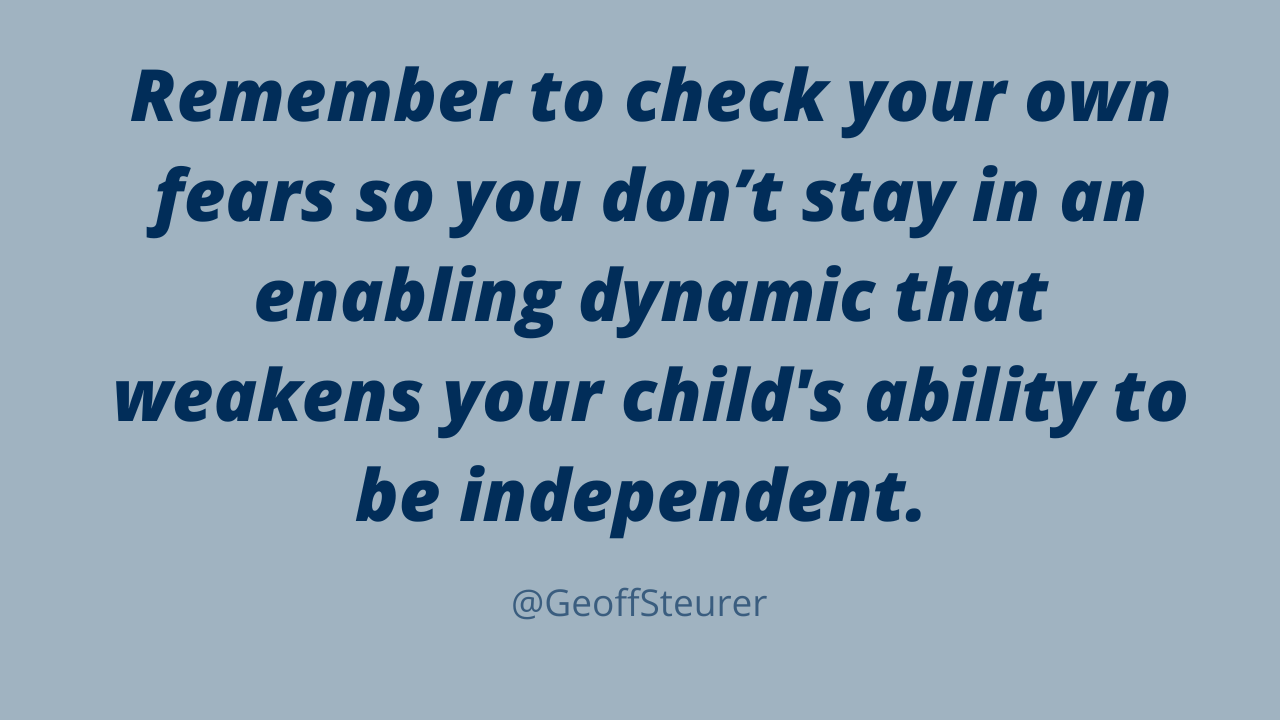Q&A with Geoff: How Can We Support Our Daughter’s Independence and Not Enable Irresponsibility?
Jul 26, 2023
Question
Our daughter in her mid-20s recently came out as gay and has ceased attending church. We were shocked but reassured her of our love and commitment to her. She’s completed a master’s degree but has been largely unemployed and is accumulating debt from student loans.
Despite living rent-free in a family member’s apartment, she struggles to take care of the property and hasn’t been paying utilities. We’ve been financially supporting her with her car, insurance, phone and groceries, but she shows little motivation to seek employment.
Her mental health issues have required medications, which have led to physical side effects that impact her self-confidence. Recently, she admitted herself to a psychiatric hospital. Afterward, she seemed open to change, but this diminished after she publicly came out and received much praise.
Now, she appears less open to suggestions and continues to spend money irresponsibly. We worry that offering more financial help may lead to further irresponsibility, and we fear she may invite a romantic partner to live with her. We want to encourage her self-sufficiency, but we’re afraid she may interpret this as a negative response to her coming out.
Answer
I can feel your love and concern for your daughter as you balance the need for her to be independent while supporting her very real personal challenges. It’s not easy to know how much to support when there are serious mental health concerns that could threaten her safety and well-being. Let’s talk about some ideas on how you can best support her.
First, let’s address the aspect of your daughter’s sexuality. While it might have come as a shock, I’m glad you can still see her as the same person you have loved and cherished. It’s crucial to ensure that she knows her sexual orientation doesn’t negatively affect your feelings toward her, nor is it a factor in any financial assistance or advice you provide.
However, from your letter, it seems as if the primary issue at hand is not her sexual orientation but rather her attitude toward life and financial self-sufficiency. The challenge you face is to provide support without enabling behavior that could be detrimental to her development as an independent adult.
Even though she might experience mental health challenges, it’s still possible for her to learn how to become a responsible adult. Even if she needs additional support, these efforts can be structured to help her maintain her dignity and independence.
I can encourage you to have her seek professional career guidance. Perhaps a career counselor can help her explore potential job opportunities in her field of study. If her area of expertise is indeed not very lucrative, she might need to consider other avenues or ways to supplement her income while still pursuing her passions.
It can also be helpful for you to create a realistic exit strategy with your financial support, so she knows that she’ll eventually need to plan for complete financial independence. For example, a timeline could be set up for her to find a job and begin contributing to rent and utilities, even if it’s a small amount initially. This could help her take on some financial responsibility and hopefully begin to understand the value of money.
It’s also clear that her mental health is a significant concern. Encouraging her to continue therapy and find a balance of medications that work for her is crucial. While you may have reservations about the current medications she’s on, it is important to trust in her ability to work with her healthcare professionals to make the right decisions.
See if she will allow you to be a part of her treatment team so you can provide critical feedback to the providers about your observations and interactions with her. Navigating the health care system, especially when confronting mental health challenges, isn’t easy and often requires some additional guidance.
As you navigate this journey, remember to check your own fears so you don’t stay in an enabling dynamic that weakens her ability to be independent. Financial support isn’t the only type of support families can offer. You can ask good questions, check in on her, offer rides, help her organize her time, listen to her work through her concerns and so on.
It might be hard for her to see that your encouragement for her to be financially independent and responsible is not a punishment or a withdrawal of love but rather a means to her growth and self-reliance. Being firm about your expectations doesn’t mean you’re withdrawing support — quite the opposite.
Also, please don’t forget to take care of yourself as you support her. Being a supportive parent to a struggling child can be taxing. Make sure you’re seeking support, setting limits to protect your health, and doing what you need to do to maintain your own well-being. And, don’t forget that you’re not alone in helping her seek a more independent life. We’re all living in the same messy world, so don’t forget that people are willing to help.
FREE: 3 Steps to End Your Marriage Argument
Download my free PDF guide and start making real progress to healing
We hate SPAM. We will never sell your information, for any reason.




